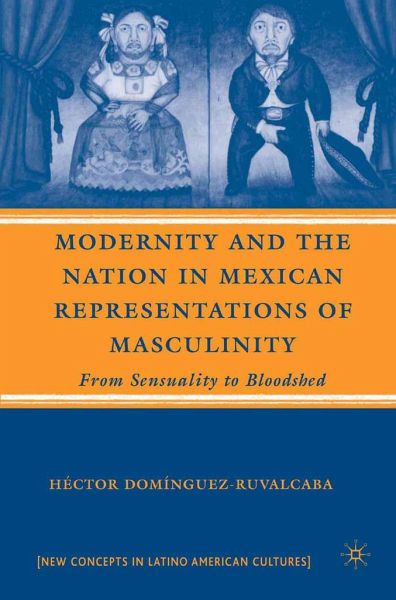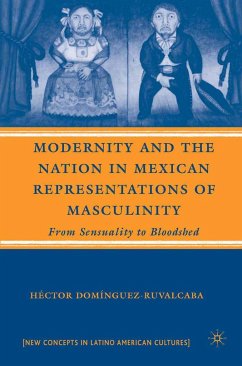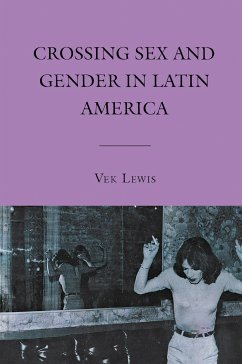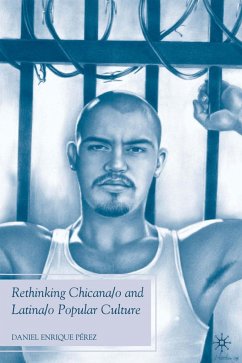
Modernity and the Nation in Mexican Representations of Masculinity
From Sensuality to Bloodshed
Versandkostenfrei!
Versandfertig in 6-10 Tagen
38,99 €
inkl. MwSt.
Weitere Ausgaben:

PAYBACK Punkte
19 °P sammeln!
This book looks at representations of the male body, sexuality and power in the arts in Mexico. It analyses literature, visual art and cinema produced from the 1870s to the present, focusing on the Porfirian regime, the Post-revolutionary era, the decadence of the revolutionary state and the emergence of the neo-liberal order in the 1980s.














